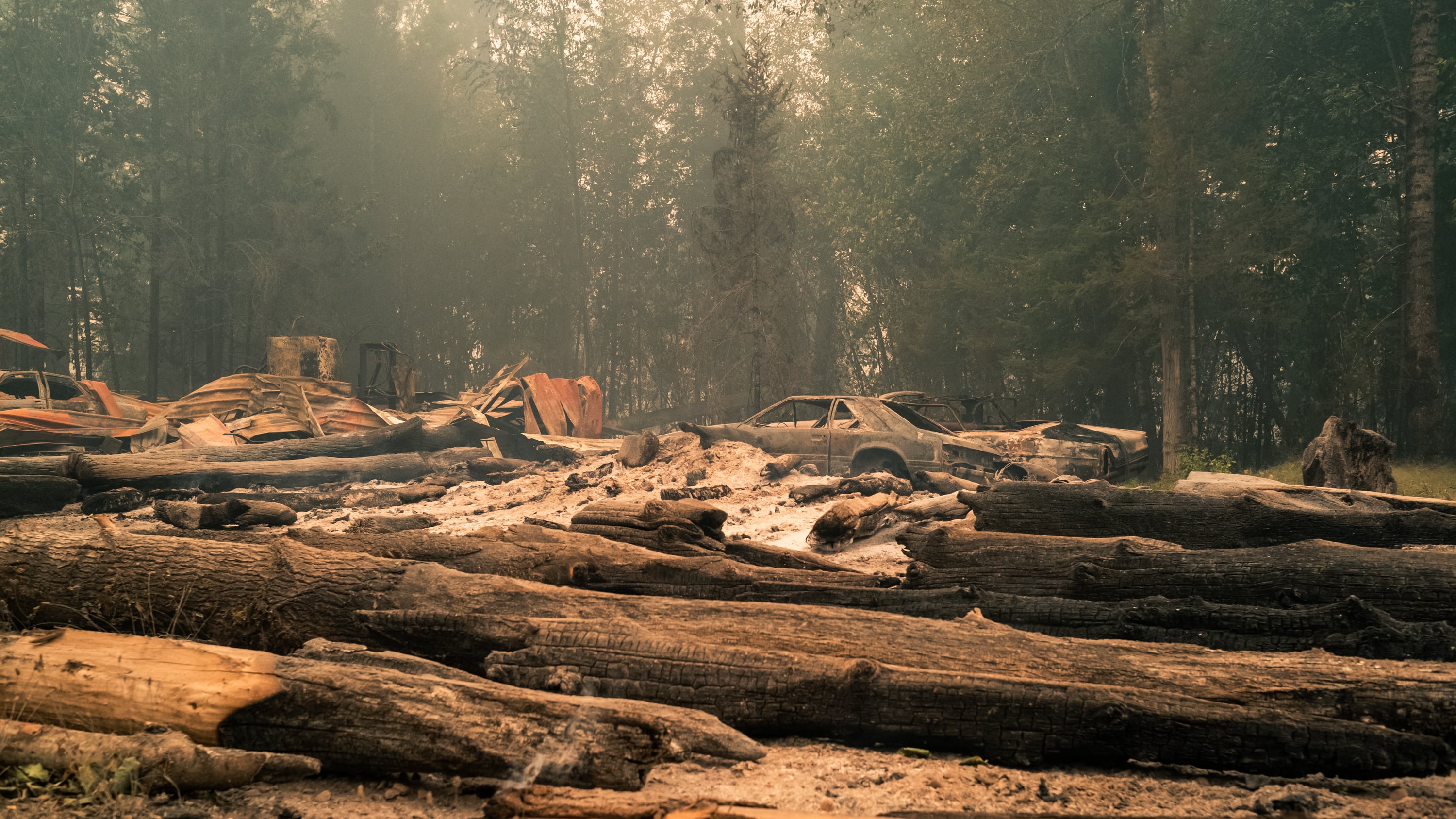As Portland enjoys a mild summer weekend, spare a thought for the rest of Oregon: Wildfires and extreme heat continue to scour the state’s southern and eastern reaches.
The Bootleg Fire, burning in the Fremont-Winema National Forest in Klamath County, tripled in size from Friday to Sunday, burning 143,000 acres, and threatened to sever the electrical grid that powers Northern California. Meanwhile, temperatures in southeastern Oregon hovered near 100 degrees, with an excessive heat warning in place through Monday.
The combination meant residents in places like Klamath Falls, south of Crater Lake, woke to a dystopian forecast of heat and smoke:
This forecast for Klamath Falls is like something out of a dystopian future we used to imagine but now inhabit. Over 100 degrees and widespread smoke with a titanic fire nearby and no water for crops. Also, it’s July 11. pic.twitter.com/zs0Yk9Y3oi
— Zach Urness (@ZachsORoutdoors) July 11, 2021
The disastrous conditions are part of a heat wave stretching along the West Coast, which saw California’s Death Valley hit 130 degrees, matching a planetary record for the past 80 years. The high temperatures, fueled by climate change and an extraordinary wave of high pressure, are adding to fire danger from a mild winter and low snowpack.
Related: Oregon’s snowpack was worrying low even before the recent heat wave.
Portland, which itself saw lethal heat kill dozens of people two weeks ago, has sent two brush units to Klamath County to fight the Bootleg Fire.
The forecast promises little relief: All of Oregon is at elevated wild land fire risk through the month of August.
Here are the latest fire potential outlooks for July and Aug courtesy of @NIFC. Note all of WA and OR are predicted to be in above-normal wildland fire potential in July. #orwx #wawx #pdxtst #NIFC pic.twitter.com/LjBPWpj3ew
— NWS Portland (@NWSPortland) July 8, 2021
Oregon is proving fatally ill-equipped to handle a warming and erratic climate.
In The New York Times this week, occasional WW contributor Sergio Olmos co-wrote a closer look at the death toll from Oregon’s heat, including the revelation that a worker at a Walmart distribution center in Hermiston died at a Portland hospital after working in a trailer with only a fan for cooling.

